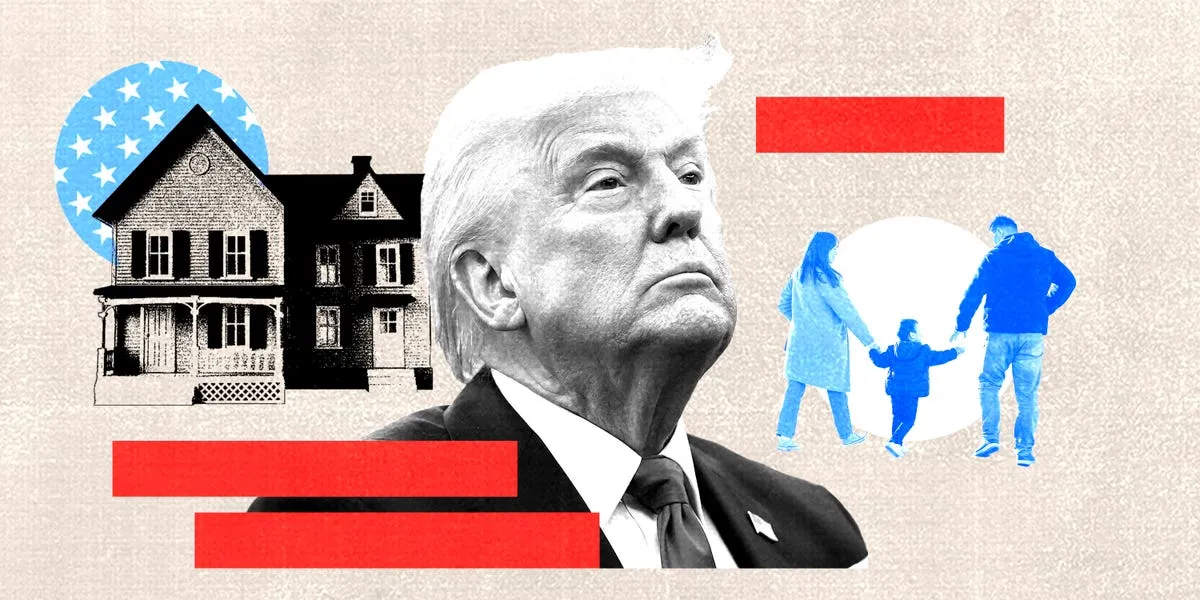
As economic uncertainty grips the United States, many Americans are delaying significant milestones such as having babies, buying homes, and pursuing new business ventures. The looming threat of tariffs is expected to drive up prices on essential goods, from groceries to cars, while sweeping cuts in federal spending are causing widespread concern about job security and financial stability. Millions are left in a state of confusion regarding how to manage their student loans, adding to the overall anxiety. A Washington D.C. resident, who recently resigned from her government position, expressed her frustrations by saying, “I feel like I just got done building a life out here,” indicating the precarious nature of her financial situation.
While the U.S. economy is not officially in a recession, a significant indicator of consumer sentiment recently plummeted to a three-year low in March. Coupled with weaker-than-expected consumer spending, these conditions are making many Americans hesitant to make major purchases or take financial risks. Despite this, some individuals support the recent cost-cutting measures introduced by the Trump administration and do not plan to adjust their jobs or savings habits. However, many have shared their stories of postponing essential life events due to economic pressures.
Florence Thompson, a 39-year-old millennial, is one individual caught in this financial limbo. She dreams of buying a home and starting a family, yet the uncertainty surrounding her student loan payments leaves her feeling stuck. As a participant in the Public Service Loan Forgiveness program, she had hoped for relief after ten years of qualifying payments. However, recent changes to eligibility under the Trump administration have complicated her situation. Thompson also enrolled in the SAVE plan, aimed at making monthly payments more manageable. Unfortunately, since a court blocked this plan in July, she has been unable to make payments, adding to her anxiety about the future.
Ashley Shannon, a 28-year-old federal employee, faced a similar dilemma when she left her position as an attorney. Although her job was meaningful and impactful, the uncertainty surrounding federal employment led her to resign. “Higher up in the agency, they pretty much told us it's either you leave or you're going to likely get fired and pushed out,” she noted. Now unemployed, Shannon fears having to move back to her hometown of Chicago if she cannot secure a new job soon.
Bri O., a 23-year-old finance professional from Charlotte, North Carolina, made the decision to move back in with her parents to save for an international move. Bri has aspirations of living abroad, specifically in Spain, but the current political climate under the Trump administration has accelerated her plans. “Being at home is allowing her to put the money she would be spending on rent and other expenses into savings for her eventual move,” she explained, highlighting the sacrifices she is making for financial security.
Margarita Sdoukos, a 49-year-old Illinois resident, once envisioned retiring early but now faces uncertainty regarding her financial future. Despite careful planning and saving, recent market fluctuations have led her to reconsider her retirement timeline. “We don't even think about retirement right now,” she admitted, reflecting the anxiety many feel about the stability of their retirement savings.
Jessica Deseo, a 40-year-old business owner in California, is also feeling the impact of economic fluctuations on her career. Balancing her own design business with a freelance role, she is contemplating whether to fully commit to her business or maintain her current job. “You see the economy around you and you're just like, 'Jesus, everyone is getting laid off,'” she said, emphasizing the challenges facing small business owners in today’s market.
Kathy Heller, a 67-year-old baby boomer, had aspirations of moving out of her studio apartment in Pennsylvania but has since reconsidered due to financial uncertainties surrounding Social Security. “Everything's changed,” she lamented, as she navigates her retirement savings while working nearly full-time as a real estate agent.
The experiences of these individuals highlight the widespread impact of economic uncertainty on personal and financial decision-making in the United States. As many face the challenge of delaying key milestones, the future remains uncertain for countless Americans.